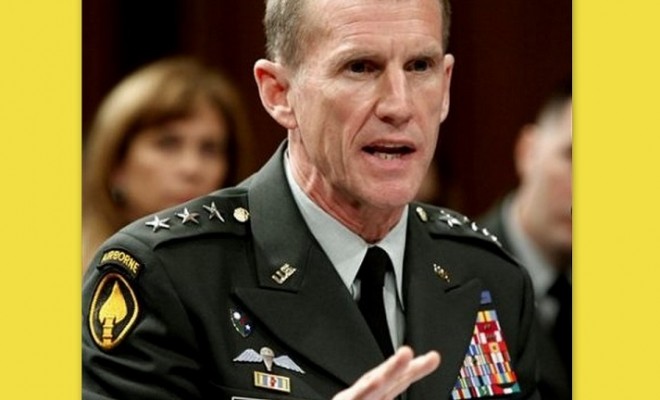
Gen. Stanley McChrystal: 5 takeaways on leadership
Retired Gen. Stanley A. McChrystal, a former commander of the International Security Assistance Force in Afghanistan, has a new book out about what makes a leader, and what doesn’t.
He and his co-authors profile a wide range of leaders in his third book, “Leaders: Myth and Reality.”
“Leadership isn’t what we think it is, in fact it never was. But it still matters,” said McChrystal, who served nearly four decades in the Army. He started his career as a West Point graduate in 1976, becoming a weapons platoon leader with the 82nd Airborne Division before passing Special Forces selection, later commanding the 75th Ranger Regiment. He headed Joint Special Operations Command during the height of the Iraq War.
He later was selected to lead ISAF in Afghanistan, a position from which he resigned and then retired from the Army following a critical Rolling Stone magazine article that revealed comments by his staff deriding President Barack Obama and key figures in the administration. Following retirement, McChrystal first headed an advisory board on military family support.
He subsequently has taught leadership courses at Yale University, joined the boards of various private companies and nonprofits and authored three books.
He spoke about the new book recently at the headquarters of the Association of the U.S. Army in Arlington, Virginia.
The following are excerpts from his talk, edited for clarity:
- An unappealing but effective leader
McChrystal and his co-authors, Jeff Eggers and Jason Mangone, sifted through centuries of examples of leaders before landing on 13 leaders to profile from a wide variety of backgrounds, the majority non-military. But one that easily caught the attention of the audience and likely close readers of McChrystal was one of his own rivals – Abu Musab al-Zarqawi, the acknowledged founder of al-Qaida in Iraq and inspiration for the founders of Islamic State.
The four-star notes that while Zarqawi came from poverty, lacked a formal education and spent his early life as a petty criminal, he found his calling in prison and used his innate talents to obtain power and influence over those around him. McChrystal said that Zarqawi traveled Iraq despite the price on his head to guide and serve as an example to the fledgling terrorist organization. “It shows he’s willing to do whatever it takes, be whatever is required.”
McChrystal led the special operations forces who hunted down and killed Zarqawi in 2006. He personally went to the bomb site to identify Zarqawi’s body.
“I wasn’t sad that he was dead but the reality was, even at that point, I had a pretty healthy respect for that guy. I could completely disagree with his cause and his methods but I had to admire his commitment, his skill, his effectiveness. He was willing to die for his cause.”
Though, McChrystal noted, while effective, Zarqawi’s brand of leadership stemmed from zealotry and was not sustainable. But even in that, he found something to question, to learn.
“We have to ask ourselves, why is it they become entranced, and why can’t they remain, why do they fade away?”
Περισσότερα εδώ:
Gen. Stanley McChrystal: 5 takeaways on leadership
Πηγή: militarytimes.com




